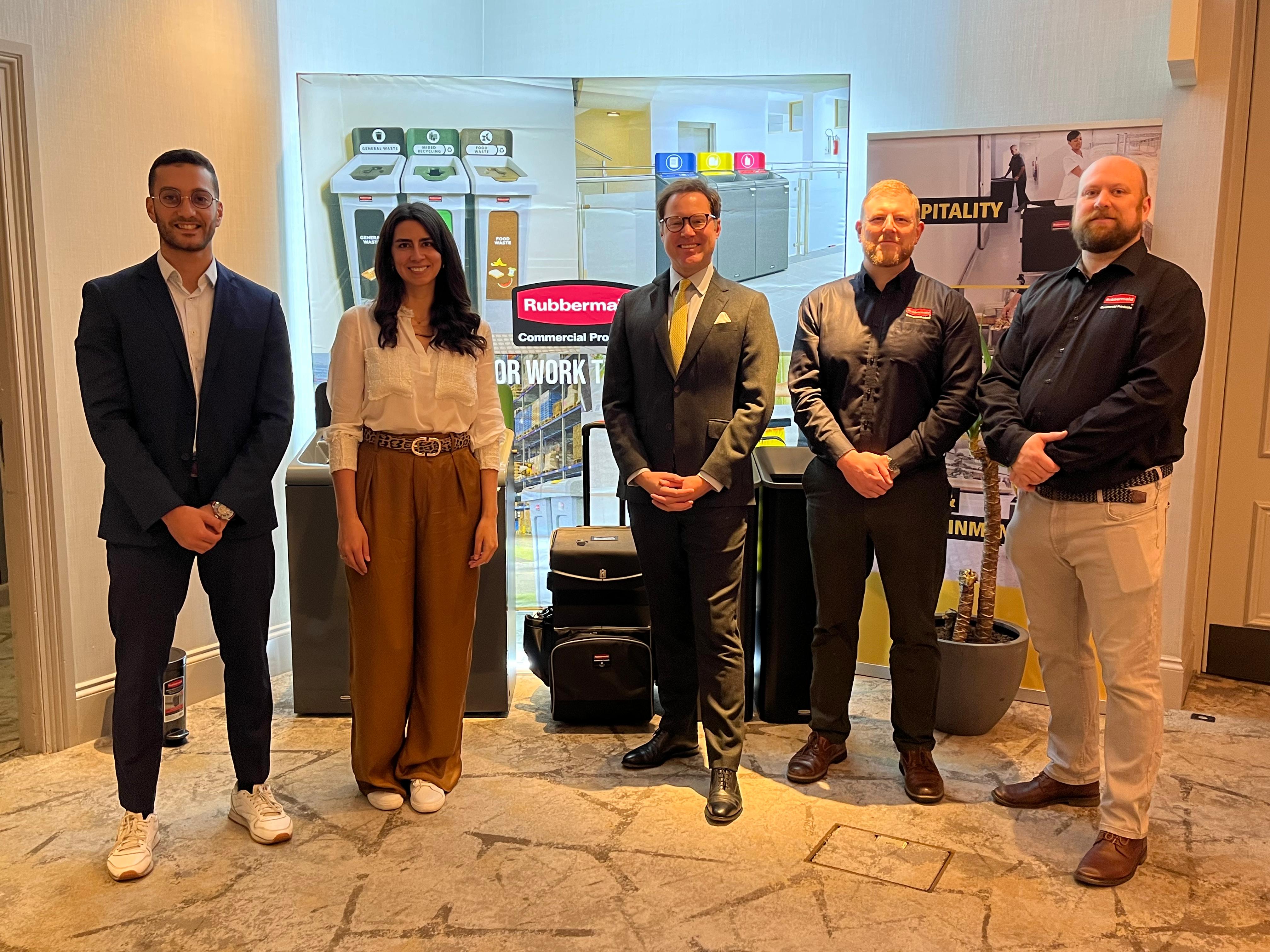
Earlier this month, we attended the 2025 Sustainability Seminar hosted by UKHospitality. Over a thousand industry leaders came together at the seminar to discuss sustainability in the hospitality sector, from investment in environmental strategies to packaging redesign and the journey to net zero.
At RCP, we design products that make commercial kitchens, hotels and venues run smoothly and efficiently. But we understand that this is only half the story – sustainability is a vital part of running any modern hospitality venue, while learning how to balance it with commerciality can be challenging.
Our sustainability and communications manager Adriana Olaya-Rodriguez shares her reflections from the event, from tackling the commercial challenge to prompting sustainable customer behaviour and dealing with food waste, here are her key takeaways and top tips.
The commercial challenge
The UKHospitality Sustainability Seminar made it clear that tackling climate change remains high on the agenda for the country’s restaurant, hotel and catering industries. However, due to facing financial pressures, 80% of businesses in the sector have scaled back ‘green’ investments in 2025.
The balancing act between commerciality and sustainability is undoubtedly a challenging one, but it can be tackled with the right strategies. It’s important to value long-term ROI as environmentally driven decisions can also have positive budget impacts in the future. The trick is not to view sustainability as a commercial burden, but an opportunity for optimisation, growth, risk mitigation and value creation.
My tip: Think of the long-term financial benefits of investments into sustainable actions – for example, efficient multi-stream recycling reduces waste management costs because recyclable waste is cheaper to dispose of. Read about how the Merrion Hotel was able to increase its recycling rate to 74% and cut its costs as a result.
Food for thought
When it comes to climate, food and beverage is the main contributor to the hospitality footprint. Strategies to reduce the environmental impacts of food and beverage include improving recipes for better nutritional profile of menus while choosing plant-based ingredients with lower environmental footprints and applying behaviour design to make sustainable and healthy options the easiest and preferred choices, as well as supply chain engagement and collaboration.
My tip: At RCP, our products assist businesses in responsible disposal to minimise the chances of landfill or incineration. Even with strategies to produce and provide more sustainable food options and to minimise food waste, there remains a need to dispose of food waste correctly. You can read more about the importance of recycling it here.
Encouraging customers to act sustainably
The simplest way to encourage customers to act sustainably is to avoid trade-offs – make it a social norm and make personal benefits relatable. At the seminar, one of the panellists explained that 67% of consumers are inspired to act sustainably when they see sustainable practices and behaviours by peers or organisations around them.
You should make the sustainable path the one of least resistance by making it visible, easy to access, and as affordable as possible, or with clear justification of the additional benefits people are getting for the price.
For example, visibility is key to getting your customers to correctly recycle their waste. Your venue should have intuitive, self-explanatory recycling stations, with clear labelling, that are placed strategically in the right places for the right waste stream.
My tip: Recycling availability and messaging should also be consistent across back of house and front of house spaces in the venue, to make it accessible and as easy to understand as possible. We also recommend using images and symbols on your recycling bins to make the different waste streams easier to understand, especially for international customers.
Communicating your sustainability strategies
When it comes to environmental practices, brands will need to have transparent and consistent communications, or risk being accused of greenwashing, which can bring significant potential for revenue damage as customers are unlikely to buy from businesses who aren’t being fully honest about their journey.
Regularly reporting on things like recycling rate is a great way to get some tangible numbers to back up your sustainability communications. It also increases trust between you and your customers when there are clear reports to refer to.
My tip: Share your sustainability journey on different channels, like reports, websites, and social media, but be transparent and specific to make sure it doesn’t fall under greenwashing. We’ve put together a full guide on recycling reporting for hospitality, which you can download here.
Looking to the future
As we moved towards the end of the seminar, I thought about the immediate next steps that the hospitality sector needed to take. The best way to understand what your business needs to do is understand where the relevant impact hotspots for your business are by doing a deep assessment of your operations and your value chain and measuring the environmental impact of both. Once identified, work with your team to develop a sustainability and compliance roadmap.
Only from there is it possible to build a tailormade roadmap that makes sense to your business and resonates with both your stakeholders and your customers.
My tip: When starting a project to improve your waste management systems and recycling, do a ‘waste walk’ to identify which waste streams are being produced in your venue and where the relevant bins are.
Get in touch with our team
If you’d like to take the first steps to improving your waste management, recycling and cleaning, reach out to the RCP team and we’ll be happy to help you explore recycling and waste management solutions that suit your venue. Our handy Audit Tool can also help you get an idea of how much your hospitality business could save by implementing a better recycling process.
Share on Social Media